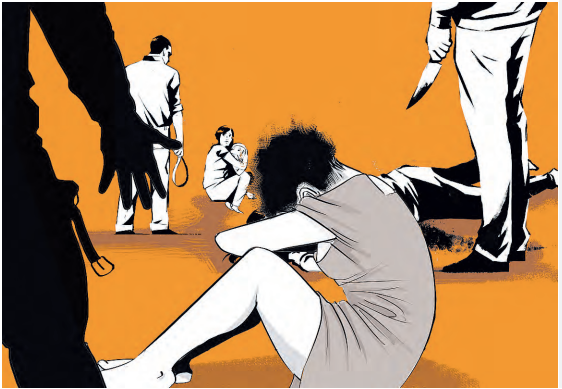

A human rights agency now wants gender-based violence committed through social media and other digital platforms to be treated with the same seriousness of law by police as physical violence.
In a policy position paper released this week, the Defenders Coalition has sounded the alarm over what it terms a growing but under-recognised threat to human rights: technology-facilitated GBV (TFGBV).
The organisation says that the scourge is turning into a pandemic that needs urgent attention, and argues that digital violence, particularly targeting women and gender minorities, is not only pervasive but deeply harmful—and must be met with robust legal, policy and social responses.
The coalition describes TFGBV as any act of violence committed, aggravated, or amplified through digital means such as social media, messaging platforms, or other online spaces.
These acts, it says, often target individuals based on gender and include harassment, threats, doxxing, cyberstalking and the non-consensual sharing of intimate images.
According to the position paper, online abuse is more than just a personal attack—it is a systemic barrier to women’s full participation in the digital world.
The coalition warns that such violence restricts freedom of expression, silences critical voices and undermines equality, especially for women and gender-diverse individuals.
Despite occurring in virtual spaces, the harm is tangible and lasting, affecting victims' mental health, safety and livelihood.
The paper calls on the police and judicial systems to treat online abuse with the same urgency and gravity as physical violence. It argues that existing legal frameworks often fail to address the unique nature of TFGBV, leaving survivors without meaningful recourse.
The organisation calls for comprehensive and gender-sensitive legislation that enables full prosecution of offenders, alongside the development of justice systems that prioritize survivor support and access to redress.
Beyond legal reforms, the organisation emphasises the need for accessible psychosocial support for victims.
Many survivors, it notes, suffer in silence due to stigma or lack of knowledge about available services. Increasing public awareness and education within communities is seen as critical to addressing and preventing this form of violence.
The Defenders Coalition also stresses that any intervention must be shaped by the lived experiences of those most affected.
Women, girls and gender minorities, it argues, must be actively involved in crafting policies and solutions, and their voices must be central to the national conversation around digital safety.
In addition, the group advocates for an intersectional approach to understanding TFGBV, recognising that individuals experience online violence differently based on their race, class, disability, or sexual orientation. Without this lens, it says, responses risk being incomplete or ineffective.
Crucially, the organisation points out that online space, just like physical public spaces, should be governed by principles of safety, dignity and non-discrimination.
It places responsibility on both governments and technology companies to protect users from abuse. Tech platforms, in particular, are called upon to improve moderation practices, enforce anti-abuse policies transparently and work collaboratively with civil society organisations.
To effectively combat TFGBV, the paper proposes a multi-stakeholder approach that brings together government, civil society, the private sector—especially technology firms—and the media.
Only through such cooperation, it says, can there be a meaningful shift in how online violence is prevented, addressed, and ultimately eliminated.
Instant analysis
The Defenders Coalition affirms its own commitment to this fight by pledging to hold all stakeholders accountable and to amplify the voices of survivors in shaping both public discourse and legal reforms.













